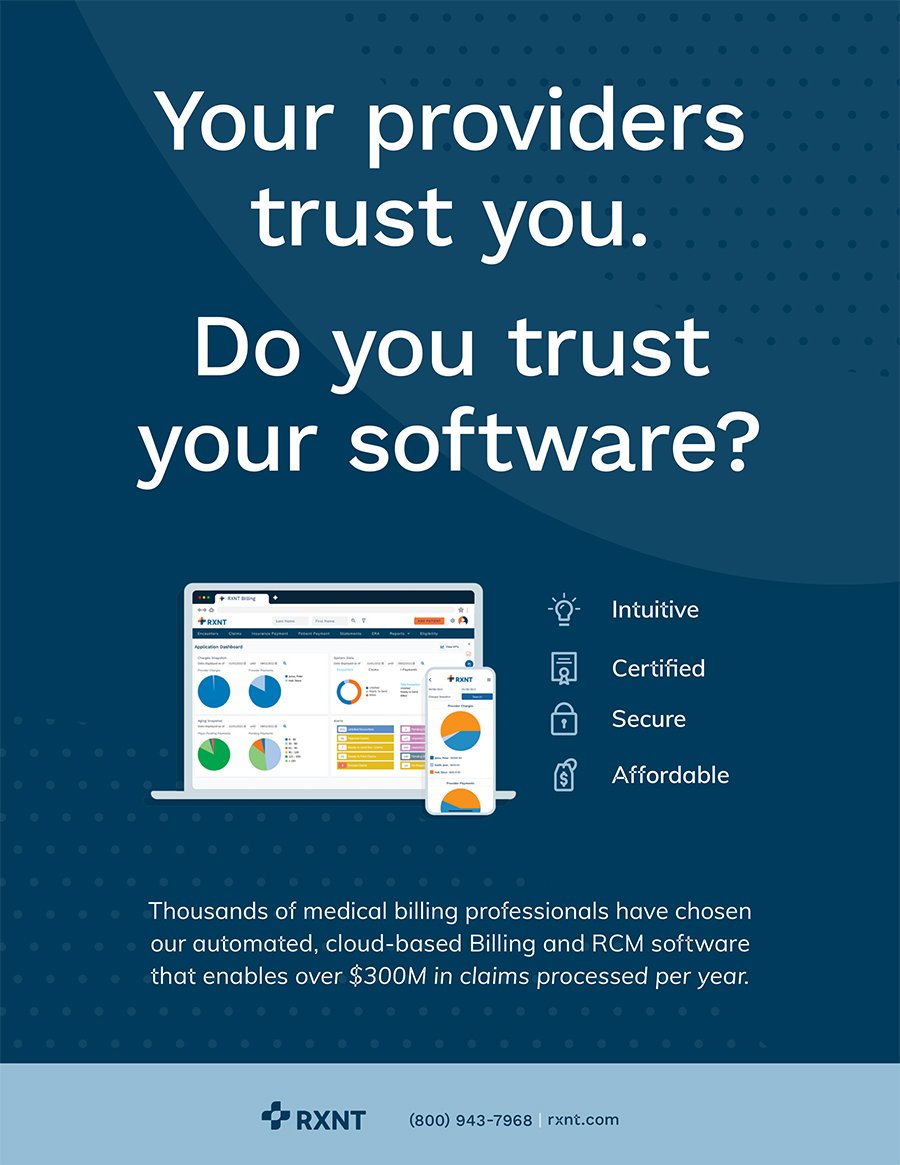
For nearly 30 years, the Workgroup for Electronic Data Interchange (WEDI) has been an instrumental force in igniting public-private partnerships to empower meaningful changes in the American healthcare system. The Biden Administration has released numerous regulations impacting healthcare stakeholders, including the data exchange requirements of the No Surprises Act, interoperability and prior authorization, and electronic attachments. Consequently, WEDI plays a critical role in convening the industry to develop consensus-based responses to these government proposals while also identifying best practices and other guidance to assist in implementation efforts once regulations are finalized.
WEDI drives strong, unified public-private partnerships to improve the health information exchange by bringing together organizations from across the healthcare spectrum, including providers, payors, vendors, and government organizations. By convening healthcare leaders and driving consensus-based solutions, WEDI has been successful in resolving current data exchange-related roadblocks and continuously motivating the industry toward administrative automation. With a focus on advancing standards for electronic administrative transactions, promoting data privacy and security, WEDI has been instrumental in aligning the industry in an effort to harmonize administrative and clinical data.
Background and History
WEDI was formed in 1991 by then Secretary of the U.S. Department of Health and Human Services (HHS), Dr. Louis Sullivan, in an effort to identify opportunities to improve the efficiency of health data exchange and the organization. Secretary Sullivan invited leaders from the health plan, provider, and vendor communities to discuss opportunities to advance administrative simplification, terming them the “working group for electronic data interchange.”
Joseph Brophy, President of Travelers Insurance Company, and Bernard Tresnowski, President of the Blue Cross and Blue Shield Association, agreed to establish and lead a voluntary, public-private task force to develop an action plan to streamline healthcare administration by standardizing electronic communications across the healthcare and health insurance industry. The initial task force included members from the following health plan organizations:
- Aetna Life Insurance Company
- Blue Cross and Blue Shield Association
- Blue Cross of California
- Columbia Healthcare Corporation
- Health Insurance Association of America
- Mutual of Omaha
- National Committee to Preserve Social Security and Medicare
- Self-Insurance Institute of America
- The Travelers Insurance Company
- United Healthcare
Provider organizations:
- American Association of Retired Persons
- American Clinical Laboratory Association
- American Dental Association
- American Health Care Association
- American Health Information Management Association
- American Hospital Association
- American Medical Association
- American Nurses Association
- Medical Group Management Association
- National Association for Home Care
Government and standards organizations:
- ANSI ASC X12
- Department of Income Maintenance State of Connecticut
- Health Care Financing Administration
In July 1992, WEDI published a report that outlined the steps necessary to make electronic data interchange (EDI) a routine business practice for the healthcare industry by 1996. WEDI envisioned the entire healthcare industry transacting business electronically, under a nationwide set of coding and format standards for all transactions. The transaction records would be transmitted electronically, in a secure manner, to protect privacy, over private and public interconnecting networks. In the year following the publication of the report, the healthcare industry made substantial gains with EDI implementation:
- ANSI ASC X12 approved the claim and eligibility standards for trial use.
- The Insurance Subcommittee of ANSI ASC X12 formed new workgroups to develop other standards required by the healthcare industry.
- CMS (then known as the Health Care Financing Administration-HCFA) initiated the use of Health Care Claim and Health Care Claim Payment/Advice standards. They increased development efforts toward standardizing data content. EDI implementation guidelines were developed for Medicare Part A Intermediaries and Part B Carriers that were consistent with the ANSI ASC X12 standards.
- The private sector began developing EDI implementation guides.
- EDI awareness and participation heightened as well as efforts to standardize data content.
WEDI reconvened in 1993 to resolve remaining implementation obstacles and issued a report calling on the industry to:
- Strengthen the understanding of and commitment to EDI among the healthcare industry, policymakers, and consumers by developing a targeted plan for using industry resources to educate key audiences on EDI, encouraging participation in demonstration projects that prove EDI benefits and cost savings, and expanding membership to reflect more broadly the key constituencies affected by EDI.
- Work for enactment of preemptive federal confidentiality protection for individually identifiable healthcare information in an electronic environment.
- Develop a strategy to facilitate quick, industry-wide transition to EDI, including universal identifiers for patients, providers, and payors; health identification cards; coordination of benefits in electronic environments; and implementation guidance for data standards.
- Work with appropriate parties to ensure that the healthcare industry can meet WEDI’s target of universal adherence to uniform data content by 1996.
- Provide additional data to the industry on the cost and benefits of EDI, using WEDI demonstration projects as a primary source.
- Monitor the industry’s progress toward the use of data standards and EDI.
- Have WEDI serve as a resource to coordinate state and national efforts on administrative simplification.
These two reports were leveraged by congressional staff into legislative language and ultimately were incorporated into the Health Insurance Portability and Accountability Act (HIPAA) legislation. WEDI was named in the law as an advisor to the HHS Secretary and since that time WEDI has closely interacted with every subsequent U.S. administration, including the current one. With its close working relationships with the Centers for Medicare & Medicaid Services (CMS), Office for Civil Rights (OCR), and Office of the National Coordinator for Health Information Technology (ONC), WEDI has the ability to influence all facets of health IT policy.
[ ADVERTISEMENT: Story continues below. ]
Through its foundation, WEDI released a report on the 20th anniversary of the 1993 report. This was the culmination of a nine-month public-private effort with more than 200 subject matter expert volunteers. Dr. Sullivan served as the Honorary Chair of the 2013 WEDI Report Executive Steering Committee and worked directly with healthcare businesses, associations, and government leaders to identify solutions that could be implemented quickly and driven by businesses. The 2013 WEDI Report identified four critical areas of focus:
- Patient Engagement: consumer (patient) engagement through improved access to pertinent healthcare information
- Payment Models: Business, information, and data exchange requirements that will help enable payment models as they emerge
- Data Harmonization and Exchange: Alignment of administrative and clinical information capture, linkage, and exchange
- Innovative Encounter Models: Business and use cases for innovative encounter models that use existing and emergent technologies
Workgroups
WEDI members volunteer their time and talent to workgroups, sub-workgroups, and task groups to provide thoughtful leadership and common-sense approaches that enhance the exchange of clinical and administrative healthcare information. They collect input, exchange ideas, and make recommendations that inspire impactful and far-reaching change in our industry. These include groups focused on the No Surprises Act, and many of the specific EDI transactions including claims, prior authorization, attachments, claim status, and remittance and payment. Other health IT issues are covered in the privacy and security, health equity, genomics, emerging technology, and telehealth workgroups.
Education and Industry Outreach
As health IT regulations are published, policy deliberations undertaken, and workgroup white papers, best practices, and guidance are released, WEDI develops education for members and the industry at large. In 2022, WEDI offered 24 educational events, twenty-two virtual, one hybrid program, and one in-person conference. In addition, WEDI offers health IT content through its YouTube channel and its very successful podcast series, “The Collective Voice of Health IT.”
It’s Raining Regulations
“Surprise” medical bills can arise when patients unknowingly seek treatment from an out-of-network provider and are forced to pay the difference between their in-network rates and out-of-network rates. Often, this is a result of an emergency situation, placing patients at an even greater risk of receiving financially crippling surprise medical bills. Also, patients can be treated at an in-network facility by an out- of-network provider leading to extremely high, and unexpected medical bills. Under considerable pressure to address these issues, Congress introduced the No Surprises Act (NSA), which then was included in HR 133 (Consolidated Appropriations Act, 2021). This bi-partisan legislation was signed into law in December 2020.
The NSA includes requirements that providers give a “Good Faith Estimate” (GFE) directly to patients if they present with no insurance, or to their health plan if they have insurance for the plan to develop and send to the patient an Advanced Explanation of Benefits (AEOB). If the service involves multiple providers (e.g., a surgery), a “convening provider” is required to communicate with the other providers and obtain GFEs from each. These GFEs are to be compiled and given to the patient if they are self-pay or sent to their health plan for the creation of the AEOB if they have insurance. Currently, there are no standards for sending GFEs to health plans and no standards for the convening provider communications. CMS has delayed the enforcement of AEOBs and GFEs.
HHS has released several regulations and numerous guidance documents, but to date, the government has not identified a method for exchanging NSA-related pricing information. Late in 2022, HHS announced enforcement discretion regarding the convening provider requirement, recognizing that no standards are in place for these transactions. While work is underway both at X12 and Health Level 7 to develop these and other NSA standards, national adoption of any NSA data exchange standard is years away.
Late in 2022, CMS released two long-awaited proposed rules that will significantly impact the healthcare industry. December 13 saw the release of the “Advancing Interoperability and Improving Prior Authorization Processes” Notice of Proposed Rulemaking (NPRM), followed about a week later with the publication of “Adoption of Standards for Health Care Attachments Transactions and Electronic Signatures, and Modification to Referral Certification and Authorization Transaction Standard” NPRM. Combined, these two proposals have the potential to significantly transform how providers and payors exchange information.
With the Prior Authorization rule, CMS is seeking to improve patient and provider access to health information and streamline prior authorization processes. The rule includes proposals requiring Medicare Advantage organizations, Medicaid Managed Care plans, state Medicaid agencies, Children’s Health Insurance Program (CHIP) agencies, and CHIP managed care entities (issuers of qualified health plans on the federally facilitated exchange), to implement Health Level 7® (HL7®) Fast Healthcare Interoperability Resources® (FHIR®) standard Application Programming Interface (API) to support electronic prior authorization.
The agency also proposes requiring covered payors to include a specific reason when denying requests, publicly reporting certain prior authorization metrics, and sending authorization decisions within 72 hours for expedited (i.e., urgent) requests and seven calendar days for standard (i.e., non-urgent) requests. CMS also proposes to add in the future a new electronic prior authorization measure for eligible hospitals and critical access hospitals under the Medicare Promoting Interoperability Program and for Merit-based Incentive Payment System (MIPS) eligible clinicians under the Promoting Interoperability performance category.
The electronic attachments rule, as proposed, would adopt standards to support both claims and prior authorization transactions, as well as adopt a standard for electronic signatures to be used in conjunction with healthcare attachments. CMS also proposes to move from Version 5010 to Version 6020 for the standard referral certification and authorization transaction (X12 278). WEDI was referenced several times in the proposed rule, including the agency citing a joint WEDI, HL7, and X12 white paper from November 2017, and acknowledging that it has taken the paper’s contents “into account in [the] proposed rule.” Furthermore, WEDI contributions were recognized in the cost-benefit analysis section of the rule.
Both proposed rules will significantly alter how providers and health plans transmit and receive health information. It will be critical for the industry to coalesce around a consistent message to ensure that the final rules will be beneficial to providers, payors, and the patients they serve.
In addition to these proposed rules, new standards for electronic transactions and operating rules have been proposed to the National Committee on Vital and Health Statistics (NCVHS). NCVHS receives requests for new or updated standards from Standards Development Organizations (SDOs) and obtains input from industry stakeholders. Following public input on the proposals, the NCVHS then can make a recommendation to the Secretary of HHS for adoption. While HIPAA requires NCVHS to render advice, the HHS Secretary is not bound by its recommendation.
The SDO X12 has requested NCVHS to recommend that the Secretary adopt version 8020 for certain transaction implementation guides, including Claims (837 Professional, Institutional and Dental) and the Payment/Remittance Advice (835). X12 is also developing new versions of several other mandated transactions. As well, the Council for Affordable Quality Healthcare (CAQH) Committee on Operating Rules for Information Exchange (CORE) has proposed the following:
- Eligibility & Benefits (270/271) Data Content Rule
- Claim Status (276/277) Infrastructure Rule (updates + reference to updated Connectivity rule)
- Payment & Remittance Advice (835) Infrastructure Rule (a reference to updated Connectivity rule)
- Eligibility & Benefits (270/271) Infrastructure Rule (updates + reference to updated Connectivity rule)
Section 1104 of the Affordable Care Act, (ACA) which amended Section 1173 of HIPAA, identifies that operating rules are business rules and guidelines for the electronic exchange of information that are not defined by a standard or its implementation specifications. The ACA instructs the HHS Secretary to adopt a single set of operating rules for each transaction, with the goal of creating as much uniformity in the implementation of the electronic standards as possible. Operating rules must be consensus-based and reflect the necessary business rules affecting health plans and providers and the manner in which they operate to support the standards adopted under HIPAA.
NCVHS is expected to issue recommendations later in 2023 regarding whether or not these electronic transaction standards and operating rules should be adopted by the healthcare industry. If the committee decides to recommend adoption of the proposed transactions, it will also have to determine whether to move forward with the new 837 and 835 transactions or wait for X12 updates to the remaining transactions and move them forward as a suite.
Opportunities for Member Input
One of the strengths of WEDI is its ability to convene the industry, effectively solicit perspectives from its multi-stakeholder membership, and submit to the government a consensus-based set of comments and recommendations. To respond to these and other important regulations and Requests for Information (RFIs), WEDI has implemented a significantly revised Member Position Advisory (MPA) process.
This MPA process typically includes:
- Surveying the industry on the provisions and questions included in an NPRM or RFI
- Discussing these provisions and related implementation issues in appropriate WEDI workgroups
- Conducting live virtual events to develop consensus positions on the NPRM or RFI
The MPA process culminates in the development of an official response to the government. WEDI comment letters carry additional weight due to their multi-stakeholder perspective. All WEDI responses to the government are public and included at www.wedi.org.
With its three decades of service, WEDI has provided a platform for the healthcare industry to come together, identify challenges, and find consensus-based solutions. Through its workgroup activity, educational programming, and development of responses to government regulations, RFIs, guidance, and other initiatives, WEDI members strive to improve healthcare data exchange to reduce costs and improve the care delivery process.


